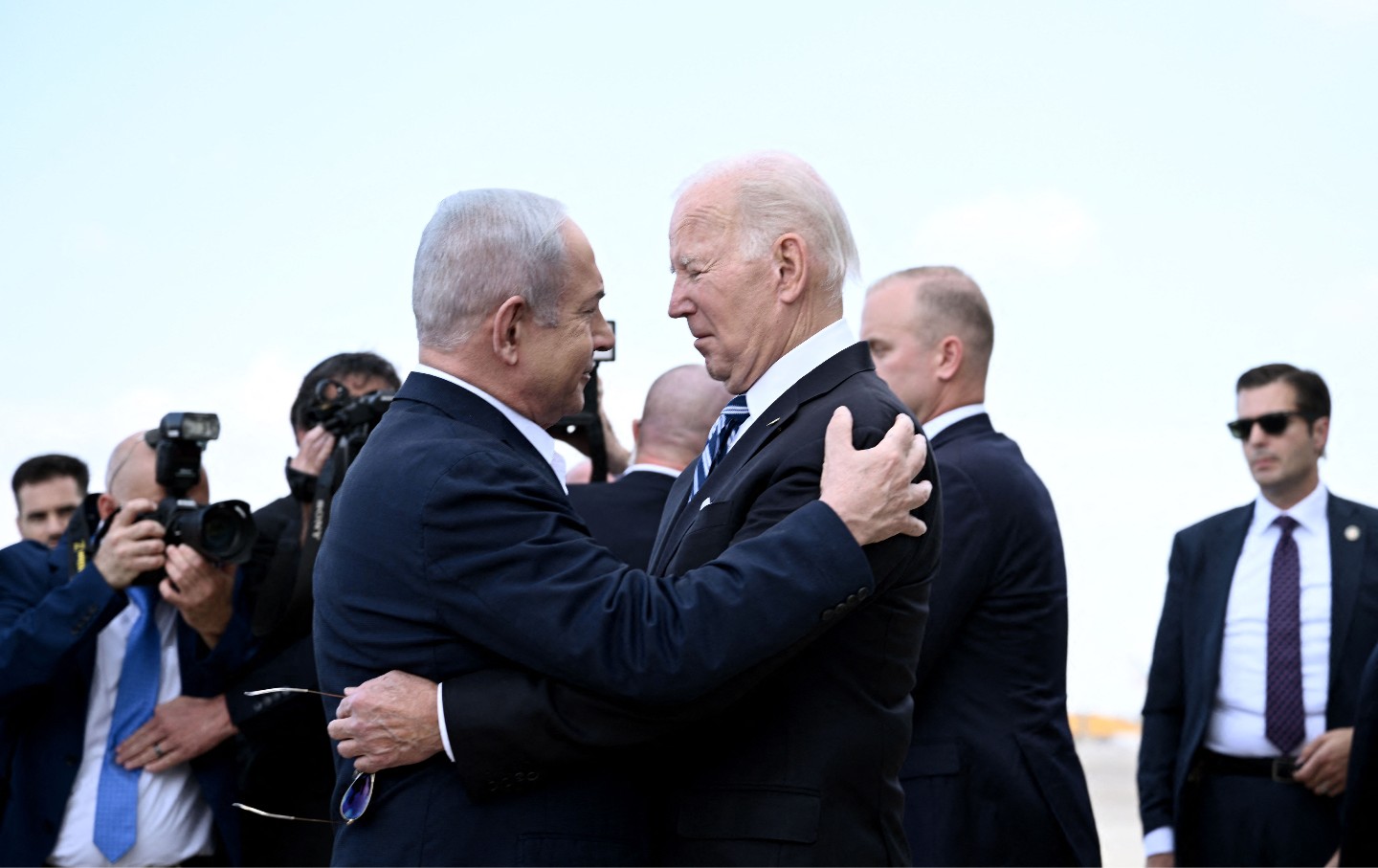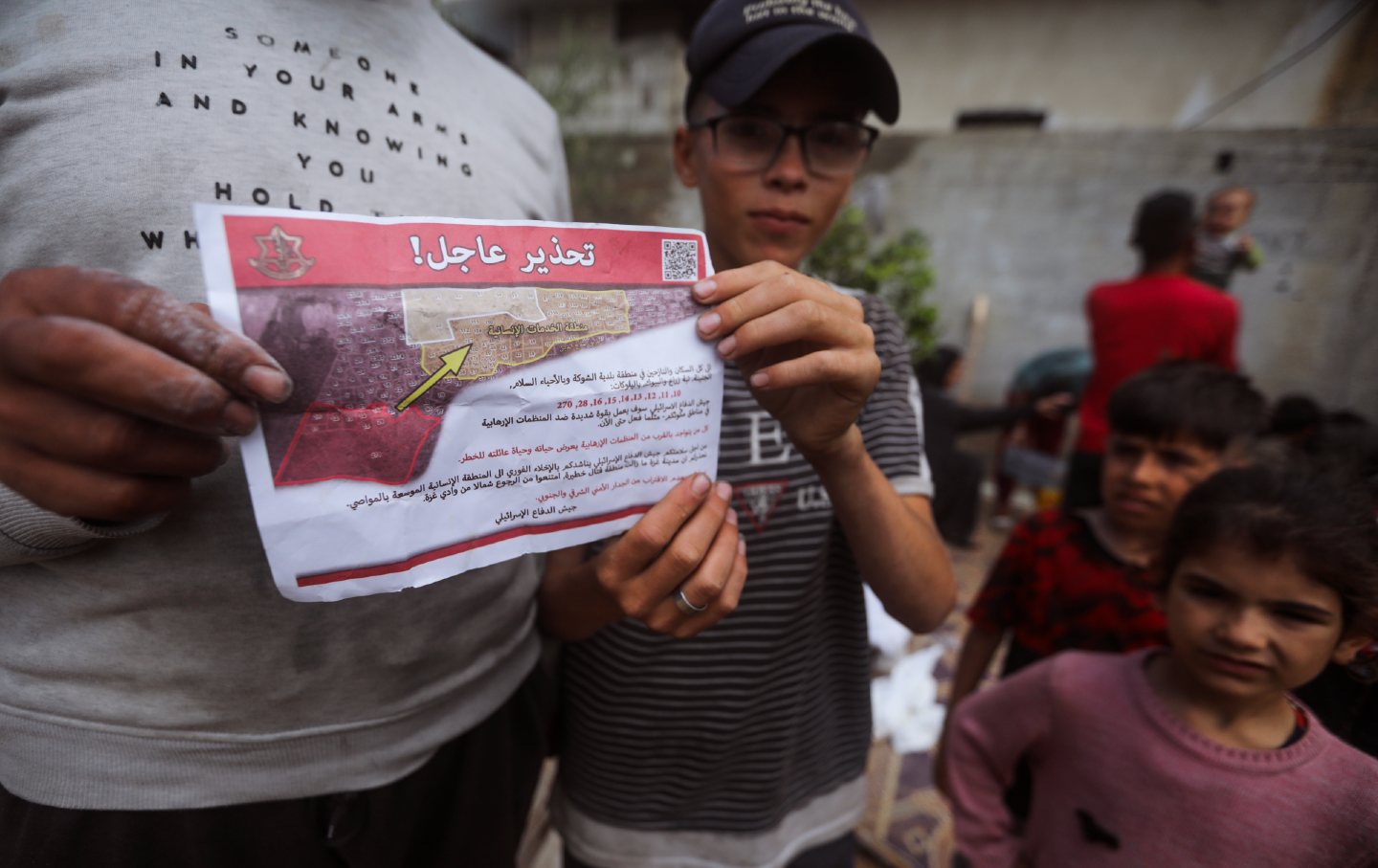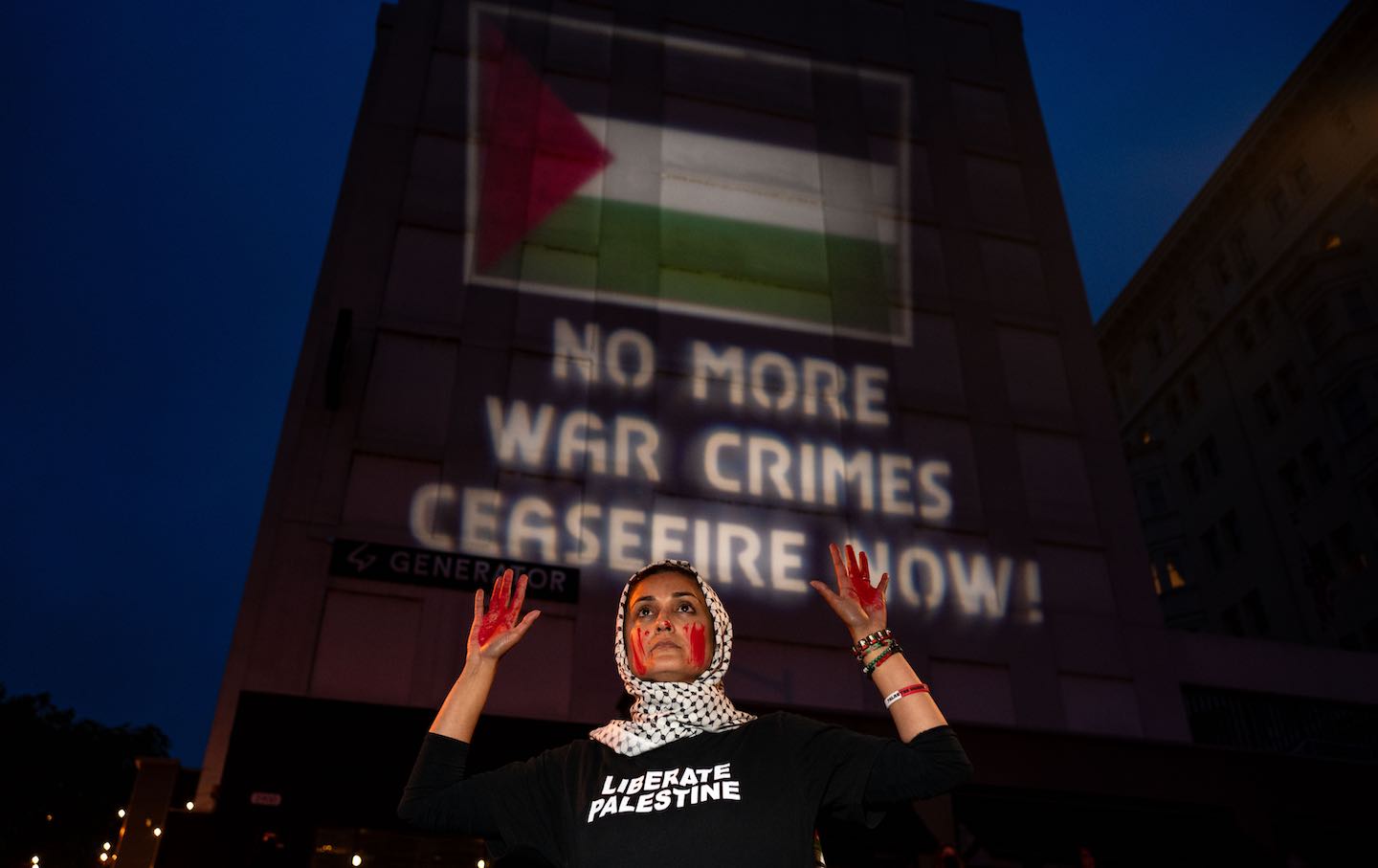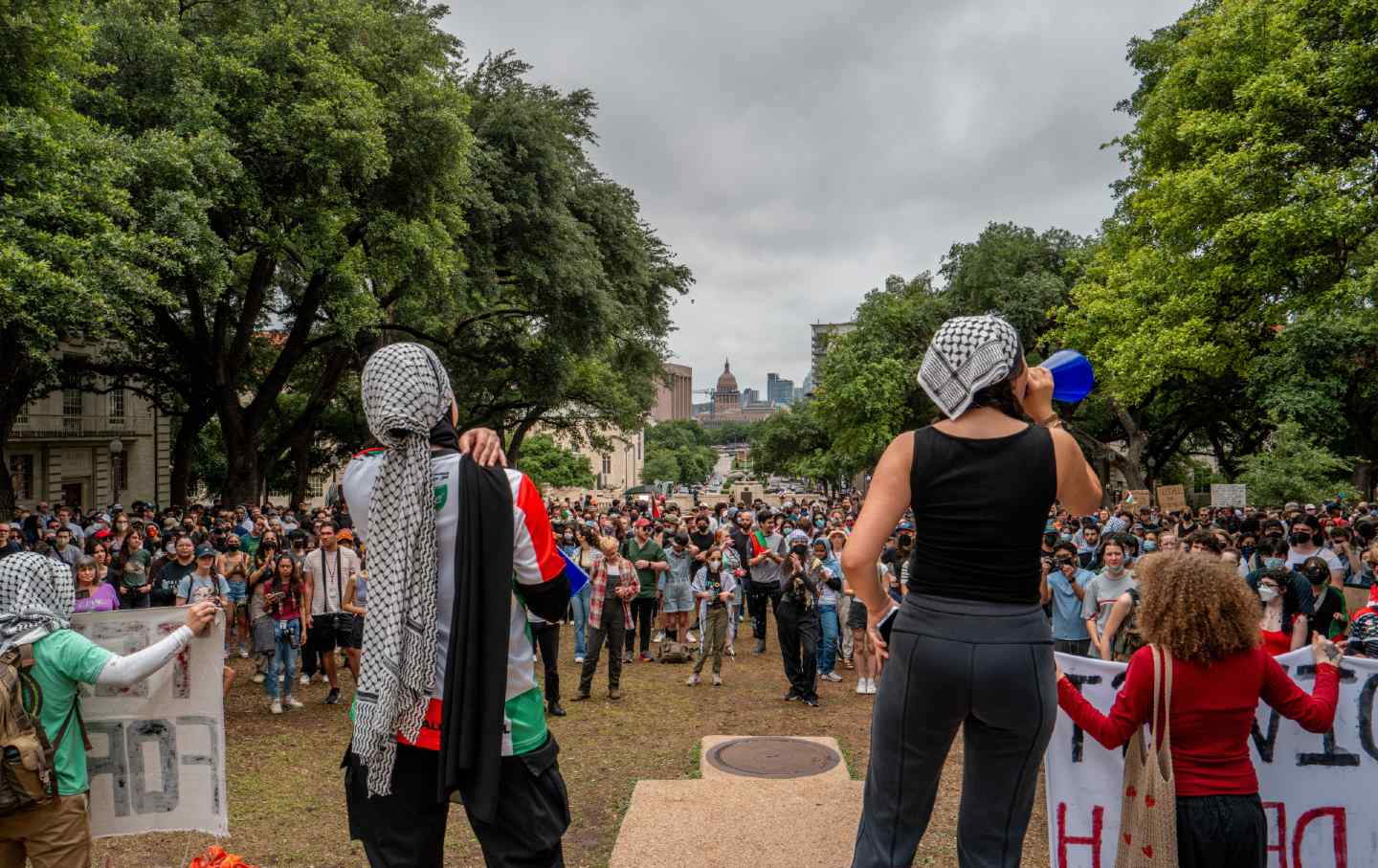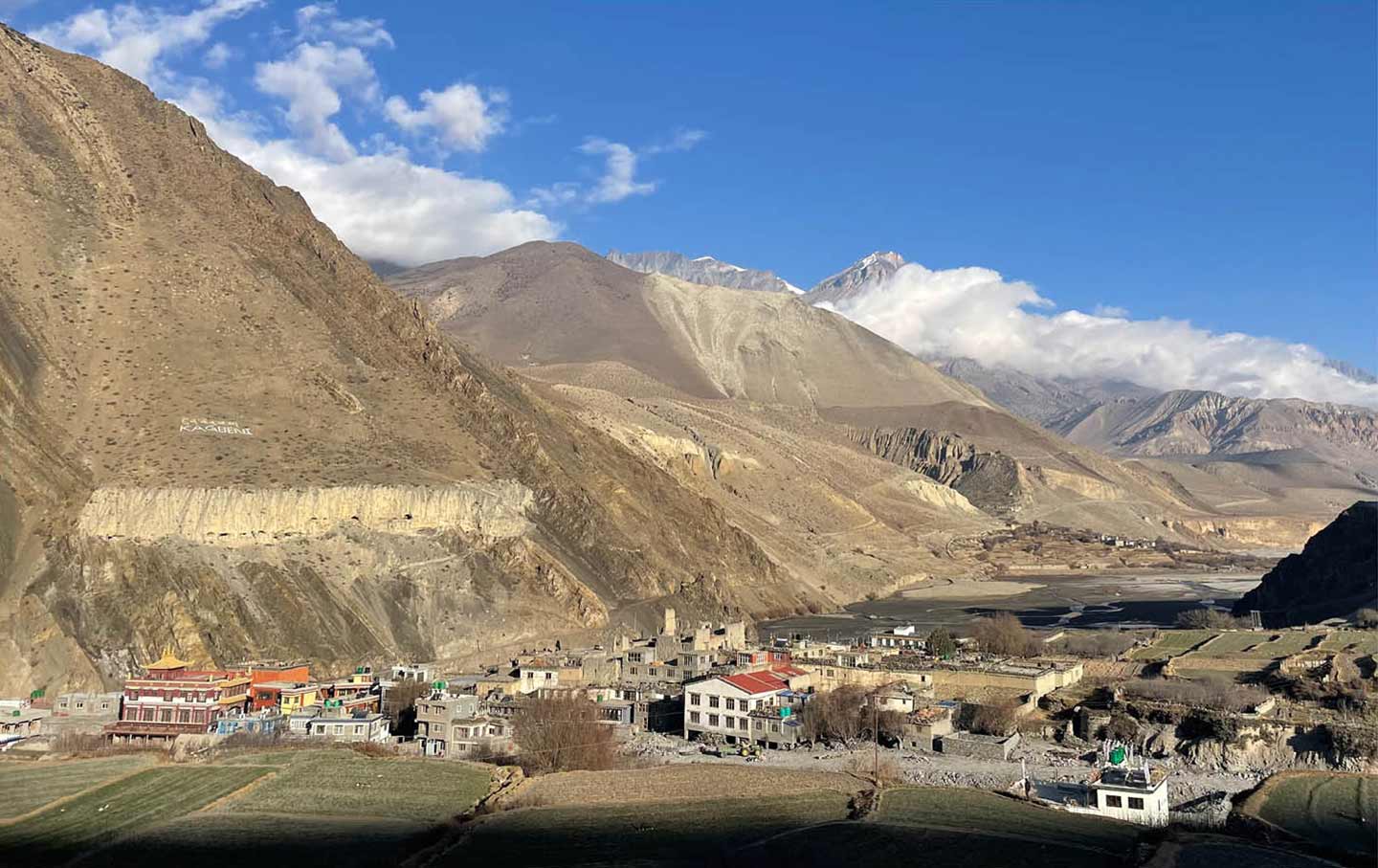Israel’s Cultural Genocide Is Destroying Gaza’s Very Memory
Israel has attacked universities, mosques, heritage sites, libraries, and more. The goal is simple: to eradicate the past, present, and future of Palestine.
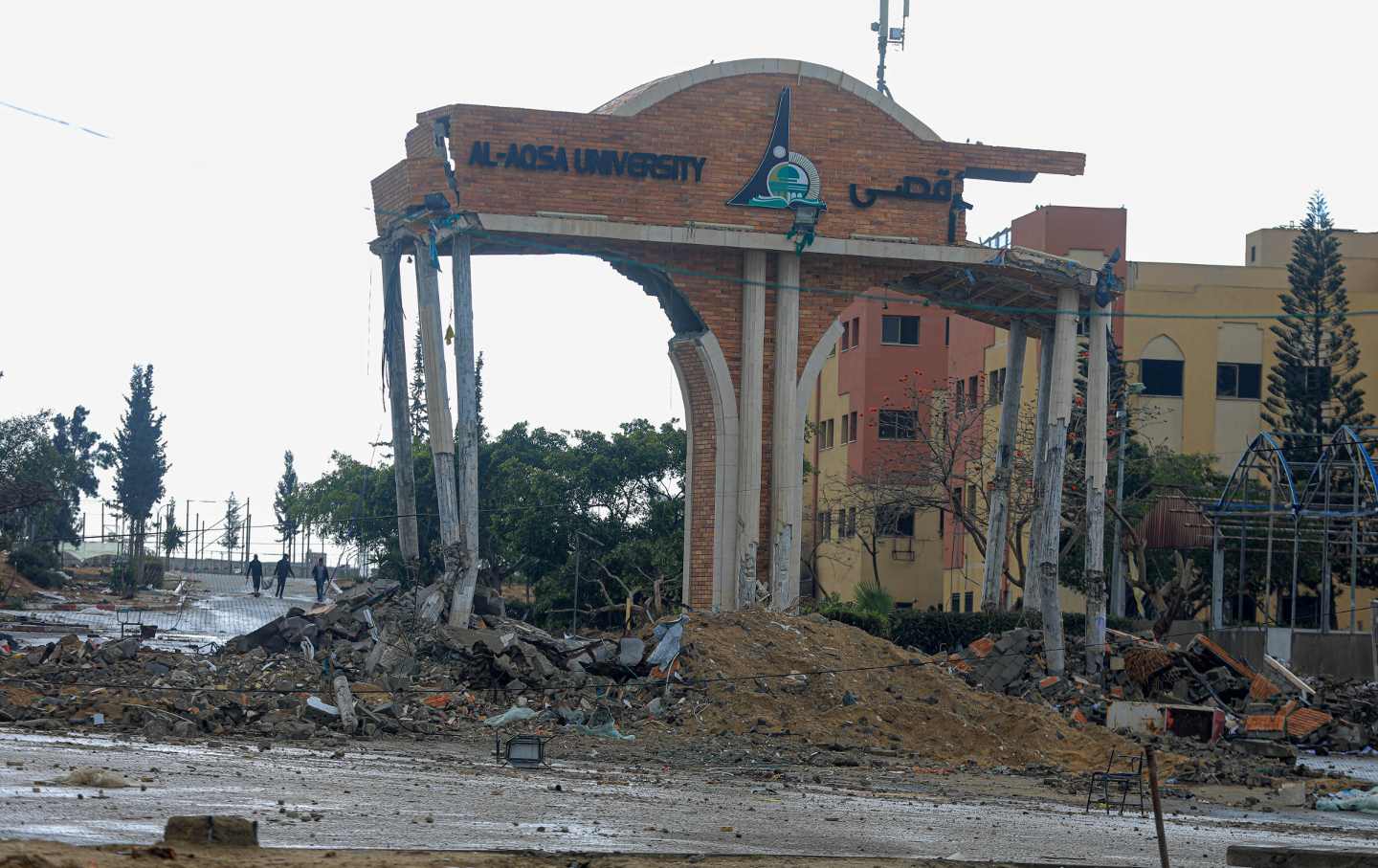
A university gate is seen destroyed in the southern Gaza Strip city of Khan Younis, on January 29, 2024.
(Rizek Abdeljawad / Xinhua via Getty Images)Growing up in the diaspora, I clung to the stories of Palestine I heard from my parents and grandparents. They gave me the undying belief that Palestinians would one day be free because we are a people rooted in resilience, culture, language, and one another.
Part of resisting the 76 years of brutal Israeli occupation is passing on these stories. Some were told by my mother when making dishes like maklouba, which was always served with “Sahtain!,” the Arabic equivalent of “Bon appétit!” (though, since it means “may your health be doubled,” it is so much more than a pleasantry). Others were told to us at bedtime, laced in the fabrics of fairy tales where we learned the true strength of Palestine lies in the “Mountain of Fire.” Then there were the stories told through tears as our grandparents relieved their darkest days, carried by every stitch and thread of Palestinian embroidery, telling of the towns lost and lives all but forgotten. Holding on to these stories is both our greatest honor and burden.
Now, this culture is threatened as never before. For the last four months, we have seen images of the dead and injured, people pulling each other out of the rubble, parents carrying the remains of their children in bags, and children screaming as they watch their parents burn. But alongside the very real genocide taking place against the Palestinian people, there is also a concentrated effort by the Israeli military against the very memory and existence of the Palestinian people—bombarding our cultural sites, hospitals, universities, homes, churches, and mosques, and, perhaps most chillingly, desecrating the gravesites of the very people they placed in the ground because even in death Palestinians cannot achieve peace.
According to UNESCO, over 195 heritage sites have been destroyed or damaged in Israel’s ongoing assault. The Gaza Media Office said in December that 200 of the 325 ancient or archeological sites registered across the enclave had been destroyed.
The devastation is unending. Gaza’s main public library and central archives have been destroyed. The Rafah Museum, which spent 30 years curating ancient coins and artifacts, now lies in ruins. Gaza’s Tourism and Antiquities Ministry says over 100 mosques have been bombed, including the Great Omari Mosque, which dates back nearly 1,400 years. Churches haven’t been spared either: the fourth-century Saint Hilarion Monastery suffered damage, while 17 Palestinian Christians were killed in an attack on the third-oldest church in the world, the Greek Orthodox Church of St. Porphyrius.
This pattern echoes previous assaults on Palestinian heritage. During its 2023 attack on Jenin in the West Bank, Israel bulldozed the Jenin grave marker honoring the Palestinian-American journalist Shireen Abu Akleh, who was assassinated by an Israeli soldier. During its 2021 bombardment of Gaza, Israel leveled high-rise buildings housing libraries and media organizations.
The intentional destruction of cultural heritage is a hallmark of occupation and colonial violence. From the Romans to the Nazis, conquering powers destroy artifacts, manuscripts, monuments, and houses of worship in order to dominate, displace, and erase traces of the people they subjugate. (Equally insidious is the way colonizers such as Israel appropriate the cultural touchstones of the people they have tried to destroy.) Wiping out Gaza’s cultural heritage is one of the many war crimes alleged by South Africa in its genocide case against Israel at the International Court of Justice.
In Gaza’s case, the targets include evidence of multicultural, multifaith coexistence predating today’s occupation, like the Katib al-Waliya mosque neighboring Gaza’s historic Saint Porphyrius Church. Other damaged sites, like the Grand Omari Mosque, were community focal points for cultural gatherings. Still others contain rare insights into Gaza’s past as a bustling trade hub, like the now-damaged ancient necropolis and third-century Byzantine mosaics.
All these vital windows into Gaza’s storied history and culture have been smashed under Israeli bombs. It’s cultural genocide with no attempt to hide it.
I am left wondering how these actions are undertaken so brazenly.
Culture provides the narratives, symbols, and social bonds through which people make sense of themselves and the world. Cultural heritage offers clues to the past while anchoring group identity and purpose in the present. That’s why consolidating control over a people, colonizing their land, or erasing their national aspirations starts by confiscating their art, artifacts, books, and buildings. Destroying cultural heritage is an attempt to destroy our hope.
But, you see, Palestinians are poetry—epic and endangered while racing against time. We have composed ourselves as poets do. Our essence flows through the oneness of our people—the resilient and the steadfast, children in the land of prophets—and our determination to see freedom in every direction. To honor the humanity of our martyrs, to read their verses, and ensure that their memories stay alive. The memory of Palestinians, and Palestine, is one that resists forgetfulness—no matter the attempts to erase us from the earth we are returned to.
Thank you for reading The Nation!
We hope you enjoyed the story you just read, just one of the many incisive, deeply-reported articles we publish daily. Now more than ever, we need fearless journalism that shifts the needle on important issues, uncovers malfeasance and corruption, and uplifts voices and perspectives that often go unheard in mainstream media.
Throughout this critical election year and a time of media austerity and renewed campus activism and rising labor organizing, independent journalism that gets to the heart of the matter is more critical than ever before. Donate right now and help us hold the powerful accountable, shine a light on issues that would otherwise be swept under the rug, and build a more just and equitable future.
For nearly 160 years, The Nation has stood for truth, justice, and moral clarity. As a reader-supported publication, we are not beholden to the whims of advertisers or a corporate owner. But it does take financial resources to report on stories that may take weeks or months to properly investigate, thoroughly edit and fact-check articles, and get our stories into the hands of readers.
Donate today and stand with us for a better future. Thank you for being a supporter of independent journalism.
Thank you for your generosity.

